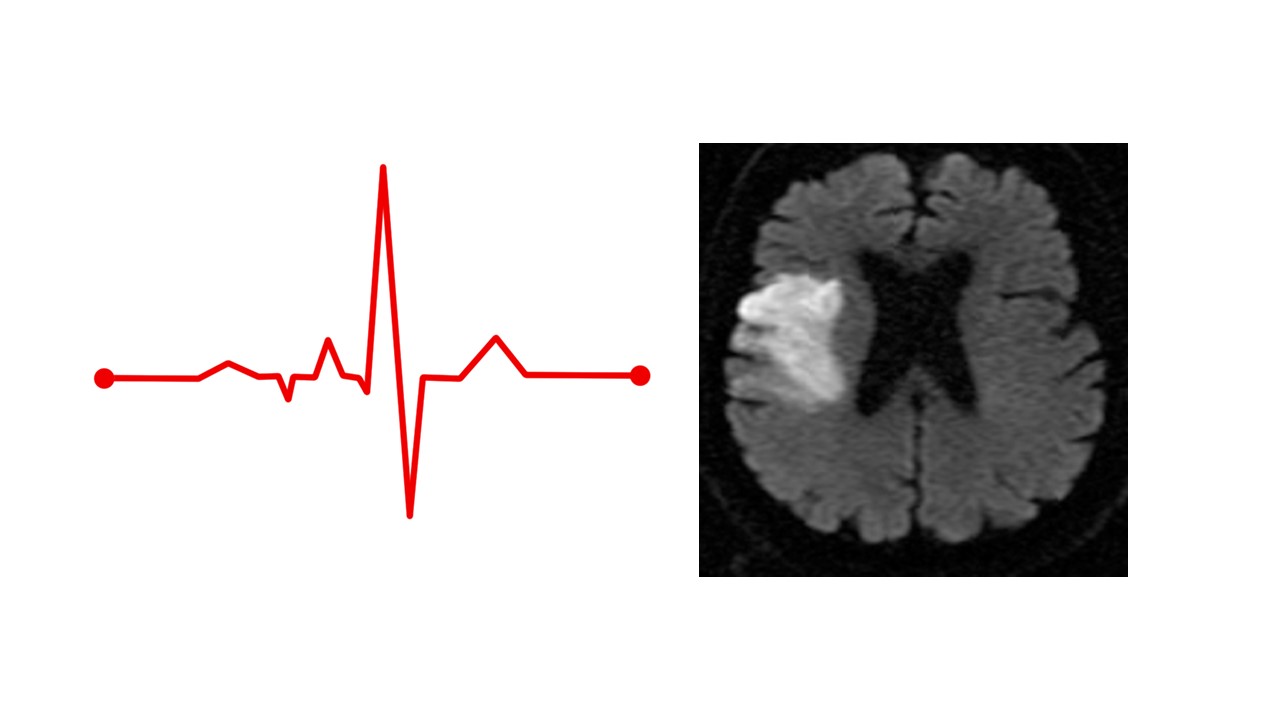Atrial fibrillation and stroke
Atrial fibrillation (AF) is a common cause of ischaemic stroke. About 20% of patients with ischaemic stroke have known AF, while up to 25% can be diagnosed with AF among the remaining 80% of the patients after extensive prolonged cardiac monitoring. In 10% of patients with ischaemic stroke, new AF is detected after diagnostic workup, consisting of ECG, ECG monitoring, or in-hospital or ambulatory monitoring for several days in most hospitals. However, a substantial proportion of patients with AF (approx. 10%) remains undiagnosed, posing them with a higher risk of recurrent stroke, and opportunities for targeted treatment potentially lost. There is currently no consensus on how AF should be diagnosed.

We aim to develop novel digital twin-based AI models for risk prediction of AF and patient outcomes, to address stroke patient cohorts at risk of developing AF and those with subclinical AF. We will combine established risk factors with comorbidities, imaging and biomarkers, which will enable further understanding of these conditions by providing enhanced knowledge of the drivers (key biomarkers) of disease onset at the level of the individual, facilitating exploration and validation of diagnostic modalities and treatments that could be tailored to each patient.